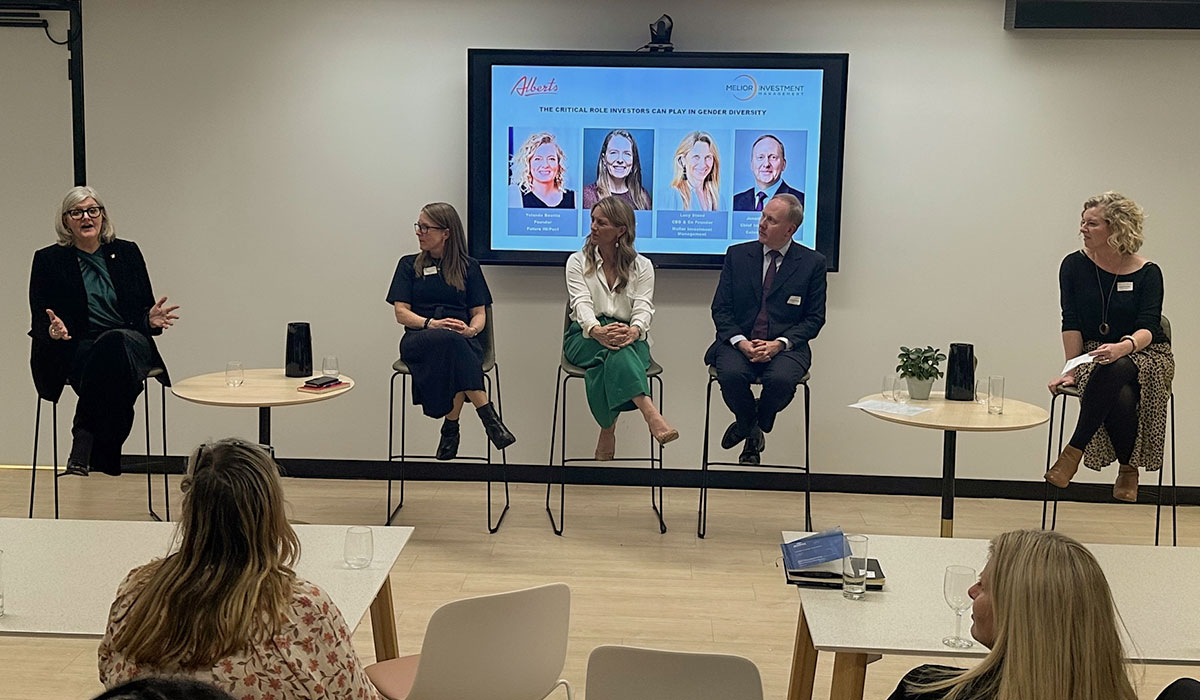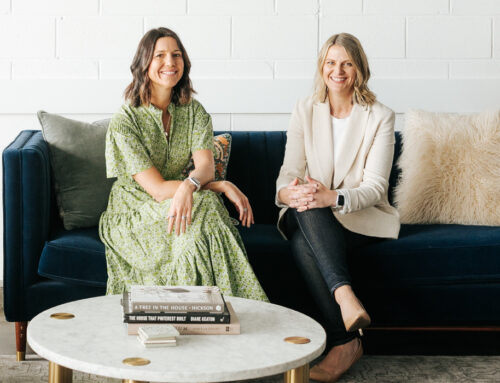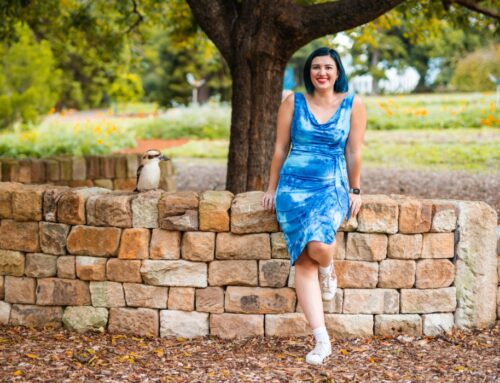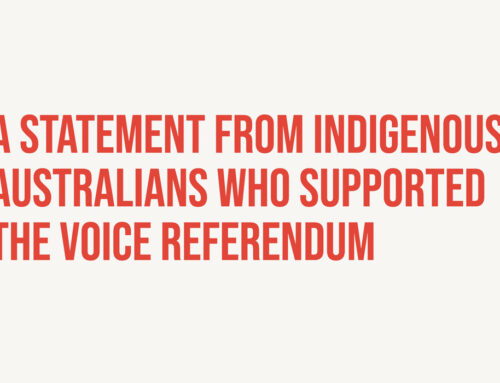Let’s get the bad news out of the way: a 2022 report by Deloitte Access Economics, Breaking the Norm, showed Australia is wasting up to $130 billion-worth of productivity gains each year by not capitalising on women in our economy.
Happily, it’s not too late: if we were to make use of the full capability of women we would create 500,000 new jobs over the next three to four decades. Given Australia remains in the #1 position globally for women’s educational attainment according to the World Economic Forum, the future is looking bright if we choose to focus on supporting women back into the workforce and creating an environment conducive to keeping them there.
In a bid to get the conversation going and encourage action through collaboration Alberts and Melior Investment Management recently co-hosted an event in Sydney exploring the critical role investors, family offices and fund managers can play in driving gender diversity.
“The prize is huge and worth going after – up to $130 billion of available opportunity we’re currently not utilising in running this economy,” noted keynote speaker Sam Mostyn, Alberts chair and a leader in the field of gender equality among many significant roles.
Leading the discussion before 60 invited guests were Melior’s CEO and co-founder Lucy Steed, Chief Investment Officer at Colonial First State Jonathan Armitage and Executive Director and fifth generation family member of Alberts, Kirsty Albert. The panel was moderated by Yolanda Beattie, Founder of Future IM/Pact.
Acknowledging the profound positive impact gender diversity has on business, society and performance, Armitage has focussed on making gender diversity the bedrock of his hiring strategy when it comes to new investment managers.
“What we’re trying to do is produce strong investment performance and I have a strong view if you don’t have diversity of thought sitting behind those investment decisions we will under-perform. It’s as simple as that,” Armitage says.
He dismisses the common refrain there simply aren’t enough female investment managers around, urging people to think creatively and look beyond straight business or accounting backgrounds. “It’s about attracting diversity of thought into the investment process and gender plays an incredibly important role behind that. For us to be successful as investors going forward we need a different set of skills,” he says, noting some of the most talented investors he’s seen come from science, liberal arts, even geology backgrounds. “It brings that plurality of perspectives and there’s no doubt females think differently, they manage risk differently and that is absolutely critical when we’re managing other people’s money.”
There is work to be done when it comes to supporting female founders, too, with only 4.4% per cent of start-ups in Australia led by females according to the Techboard Female Founder Funding Report (FY2018-FY2021). Steed is a great example of why investing in and creating a flexible working environment for female founders yields great results. Five years ago she decided to return to the workforce after leaving a senior funds management role 12 months earlier to spend more time with her three young children after a health scare. She was enticed back by the idea of taking impact investing mainstream and co-founding an impact investing business alongside Tim King who, with the support of Adamantem, readily agreed to the idea and benefits of a flexible work environment.
“It’s about thinking outside the box because women often are the primary care-givers and trying to balance lots of different things,” Steed says. “We have great ideas: support us.” Since they founded the business in 2018 diversity has remained critical to how they designed and ran the business, from ensuring a 50:50 gender diverse investment team to seeking to invest in large companies that display gender leadership.
Like Armitage, Steed is quick to point out the focus on gender diversity is never at the expense of profit, quite the opposite. “Over our four years we’ve had top quartile performance in our returns which demonstrates this is a great way of investing. [It’s crucial we deliver] competitive returns and increasingly, academic empirical evidence shows companies with strong gender [diversity] are outperforming others.”
Alberts is similarly conscious of leading by example. Alberts Impact Ventures is an early stage venture capital fund that invests across four impact thematic areas, ones being equality. Although the fund hasn’t set gender targets or quotas, of the 17 portfolio companies Alberts has invested in to-date, 56 per cent have either female or mixed gender founders while 39 per cent have female founders. “That is a reflection of the diverse team we have making the decisions on those investments, where we have a female investment manager and mixed team who perhaps see opportunities differently,” Albert says.
Nevertheless, Alberts is conscious the report card isn’t so good when it comes to the funds the parent company invests in, something they’re determined to address. “Our stats aren’t good – we’ve just done a rough analysis which showed that males made up 90% of the partners and portfolio managers of the funds we’ve invested in so we’ll be making [gender diversity] part of our investment decision-making going forward. It’s something we’re committed to, as we want to look at gender diversity across all our investments with a key rationale being we will get better financial performance through diverse teams.”
Family offices can play their part too, either alone or by joining forces with others. “Have the conversation,” says Albert. “Asking the question of the funds you’re looking to invest in is so important, because the more you ask the question the more important it becomes and funds will need to start taking action.”
It’s time we all took action and started realising the momentous gains that can be made by the economy, by society, in recognising and acting on the role investors, businesses and family offices can have on achieving and supporting gender equality.
“As investors, as employers, people looking for things to invest in or looking at your own organisations the big opportunities for the future will be the dynamic investment either in women founders or in organisations that have understood this and have gender equality on their boards. This is the big investment in the future,” says Mostyn. “But we need to get on with it because we’re losing time. So it’s in your hands.”






